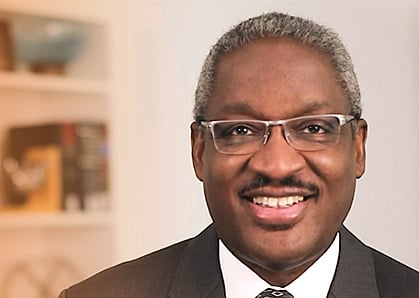Law360, New York (September 23, 2016, 5:19 PM EDT) -- Albert E. Dotson Jr. is a partner at Bilzin Sumberg Baena Price & Axelrod LLP's in Miami. He is the land development and government relations practice group leader, handles federal and local government procurement contracts, and compliance. He also represents real estate developers in securing land use, zoning and other government approvals, and permits for large-scale real estate developments. Dotson routinely negotiates economic development incentive programs on behalf of major U.S. corporate clients.
In 2009, Dotson was chosen as a member of the Florida Federal Judicial Nominating Commission, a statewide panel charged with selecting finalists for presidential appointments to district judgeships, U.S. attorneys and U.S. marshals, and was reappointed in 2013 to a third, two-year term. In 2014, Dotson was appointed by President Barack Obama to the President’s Advisory Commission on Educational Excellence for African Americans, to advise the president and the secretary of education on ways to advance federal programs that improve educational opportunities for African-Americans, increase participation of the African-American community in federal agency programs and engage stakeholders in a national dialogue on the mission.
Dotson has been consistently recognized by Chambers USA and The Best Lawyers in America for his work in land use and zoning law. In 2014, he was named "Miami Lawyer of the Year" in government relations law by The Best Lawyers in America. Dotson has also been honored for his involvement in civic and charitable organizations; in 2013, he received the National Black MBA Association President & CEO Award for Community and Social Justice Leadership.
Q: What skill was most important for you in becoming a rainmaker?
A: Becoming a rainmaker takes a number of skills but most importantly, it requires an ability, willingness and desire to fully understand the community in which you practice. That means going beyond current business opportunities to really understand the issues that confront the region, the organizations that are involved in addressing them, and finding a way to participate.
By getting involved and demonstrating a sincere commitment, you can then share your legal analysis and be seen as an adviser on the issues that matter most. At the same time, you can be in the best position to instill trust and evolve into the role of a counselor, confidante and someone who can help clients achieve their business objectives as opposed to just implementing what a client wants you to do. Earning a seat at the table when business decisions are made is how you become invaluable.
Q: How do you prepare a pitch for a potential new client?
A: There should be no such thing as a canned pitch — at least not if you want to actually win the business — because you are not selling yourself to a client, you are understanding your client’s business objectives, strategies and concerns, and then matching your experience to address them.
Business development is about the client, not about the law firm, which is why when I prepare for a new business meeting, I don’t come with a slick brochure or fancy resume. I come with a desire to learn more about them and why they brought me there in the first place.
Q: Share an example of a time when landing a client was especially difficult, and how you handled it.
A: A potential client asked us to come in and interview for the business, matching us up against the law firm they were already using. Going up against an incumbent is always a challenge but a unique advantage that we have is the depth of our connectivity throughout the South Florida community. In this instance, the incumbent was a global firm who could tout their connections to Paris, New York and Brazil, but despite having an office here, did not have a strong presence locally.
The client understood that advocating for their best interests also meant having the right relationships on the ground. Not only did we get the work; our role began to expand significantly because the client felt confident that we could go beyond the legal requirements of the job and provide meaningful impact on the broader issues they faced.
Q: What should aspiring rainmakers focus on when beginning their law careers?
A: The goal of any lawyer should be to become invaluable to their firm, their clients and the community. The way to become invaluable is to be a great practitioner, be extraordinarily proficient in your practice area, and continually look for ways to strengthen and expand the contacts that you have.
Often times we don’t always recognize the benefit of certain relationships, whether it be colleagues from undergraduate or law school; parents at your child’s school; members of a nonprofit that you are passionate about; or people in your neighborhood. If you plan to practice law as a career, you need to view it as a long game because the stronger your base and the stronger your network, the more you will be seen as the go-to person in business.
Q: What’s the most challenging aspect of remaining a rainmaker?
A: The most challenging aspect is to remain current on the issues impacting your clients and prospective clients, and making sure you are always looking for ways to be available to those who might need your services. It is a constant effort you must undertake if you want to be in the position to earn business. That means understanding the industries your clients are in, the threats your clients may face, and the role that you can play in addressing them.
The opinions expressed are those of the author(s) and do not necessarily reflect the views of the firm, its clients, or Portfolio Media Inc., or any of its or their respective affiliates. This article is for general information purposes and is not intended to be and should not be taken as legal advice.
This article is reprinted with permission from Law360.
